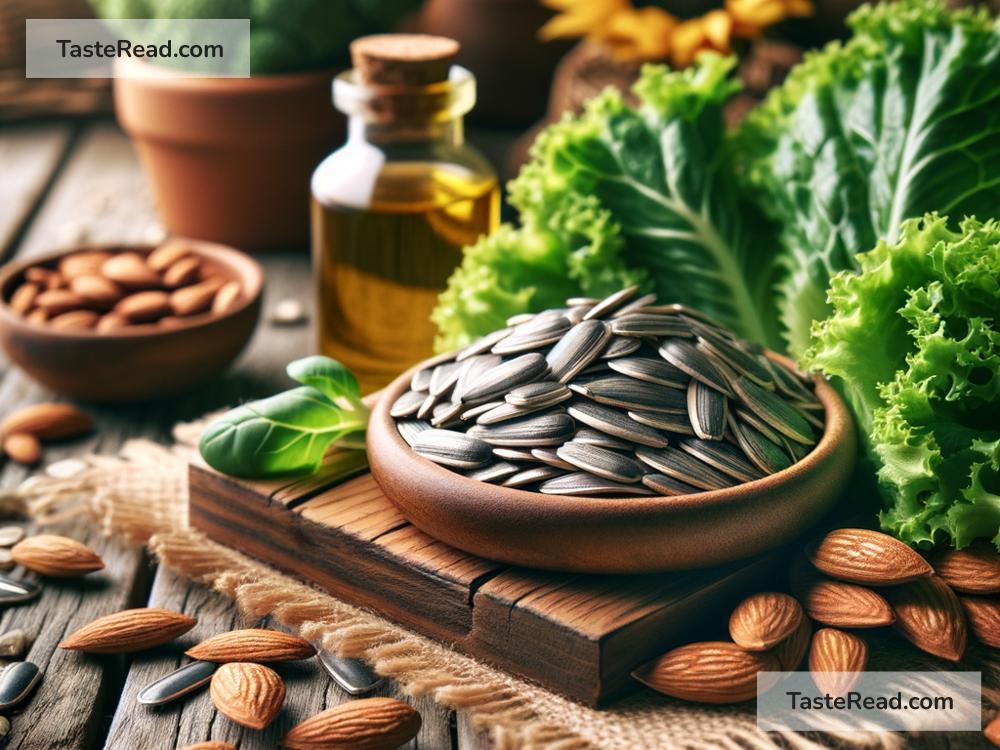Understanding the Role of Dietary Tocopherols in Health
When it comes to nutrients that keep your body healthy, vitamin E often gets mentioned, but not everyone knows what it actually does. Plus, the term “tocopherol” might sound intimidating, even though it’s simply a scientific name for one part of vitamin E. In this blog, we’ll break down what tocopherols are, why they matter to your health, and how you can get them from your diet—all in simple English.
What Are Tocopherols?
Tocopherols are a group of compounds that make up vitamin E, which is a fat-soluble nutrient. This means your body stores it in fat, and it’s important for many processes in your body. There are four types of tocopherols: alpha-, beta-, gamma-, and delta-tocopherol. Among these, alpha-tocopherol is the most active and beneficial form for humans. It’s often what people mean when they talk about vitamin E.
Tocopherols act as antioxidants, fancy chemicals that protect your cells from damage. Think of them like shields for your body’s cells—they block harmful substances called free radicals. Free radicals can damage cells and contribute to aging and diseases like heart problems and cancer. This is why tocopherols are considered super important for good health.
Why Are Tocopherols Important for Your Health?
1. Cell Protection
Tocopherols work to protect your cells from oxidative stress, which is essentially damage caused by free radicals. Every day, your body is exposed to free radicals from things like pollution, processed food, and even sunlight. If these free radicals aren’t kept in check, they can harm your body at the cellular level. Tocopherols neutralize free radicals to keep your cells and tissues healthy.
2. Skin Health
Vitamin E is often included in skincare products, and tocopherols play a role in keeping your skin looking youthful and hydrated. They help repair damage caused by sun exposure and pollution and keep your skin smooth and healthy.
3. Immune System Support
Tocopherols also help your immune system, which is your body’s defense against illnesses. By protecting your white blood cells (the ones that fight off infections), vitamin E makes sure your immune system stays strong. This is especially important as you get older, since aging can weaken your body’s natural defenses.
4. Heart Health
Research shows that tocopherols might help protect your heart by preventing LDL cholesterol (often called “bad” cholesterol) from oxidizing. When LDL cholesterol oxidizes, it may lead to the buildup of plaques in your arteries. By reducing this process, tocopherols may lower your risk of heart disease.
5. Brain Function
Tocopherols are not just good for your body—they’re also great for your brain. They work to protect brain cells from oxidative damage, which is linked to memory problems and diseases like Alzheimer’s. Some studies suggest that diets rich in vitamin E could help keep your brain healthy as you age.
How Can You Get Tocopherols from Your Diet?
Luckily, getting enough tocopherols isn’t difficult if you eat a balanced diet. They’re found naturally in many foods, particularly plant-based ones. Here are some of the best dietary sources:
1. Nuts and Seeds
Nuts like almonds, hazelnuts, and walnuts are packed with alpha-tocopherol. Seeds such as sunflower seeds also contain high amounts of tocopherols. They make for a tasty, convenient snack and are easy to add to salads, oatmeal, or smoothies.
2. Vegetable Oils
Some oils, especially sunflower oil, olive oil, and wheat germ oil, are great sources of tocopherols. Using these oils in cooking or dressings can help you meet your daily vitamin E needs.
3. Leafy Green Vegetables
Spinach, kale, and Swiss chard not only provide vitamins and minerals but also contain tocopherols. Including leafy greens in your meals can boost your overall nutrition.
4. Whole Grains
Whole grains like quinoa, brown rice, and barley are healthier choices than processed grains and can give you a small boost of tocopherols.
5. Avocados
Avocados are a delicious, creamy food packed with healthy fats and vitamin E. Spread them on toast or slice them into a salad as a nutritious addition to your meal.
Are Supplements Necessary?
For most people, dietary sources are enough to meet their vitamin E needs. However, some individuals might consider taking a vitamin E supplement, especially if they have difficulty absorbing fat or have dietary restrictions. It’s important not to take too high a dose, as excessive vitamin E can cause side effects like nausea and increased bleeding. Always consult a doctor before starting a supplement.
How Much Vitamin E Do We Need?
Adults generally need around 15 milligrams of vitamin E each day. That’s not too hard to achieve with a diet rich in nuts, seeds, vegetable oils, and leafy greens. Children, pregnant women, and breastfeeding mothers may have slightly different requirements, so check with a healthcare provider for tailored advice.
Conclusion: A Simple Step Toward Better Health
Tocopherols, as part of vitamin E, are vital for keeping your body running smoothly. They protect your cells, support your skin and brain, strengthen your immune system, and help prevent heart disease. The best part? They’re found in healthy, delicious foods, so getting enough from your diet is simple.
By eating a balanced diet that includes nuts, seeds, leafy greens, vegetable oils, and whole grains, you can ensure your body gets all the tocopherols it needs. And remember, small changes in your food choices can lead to big benefits for your health. Start adding more tocopherol-rich foods to your meals today—you’ll thank yourself later!


